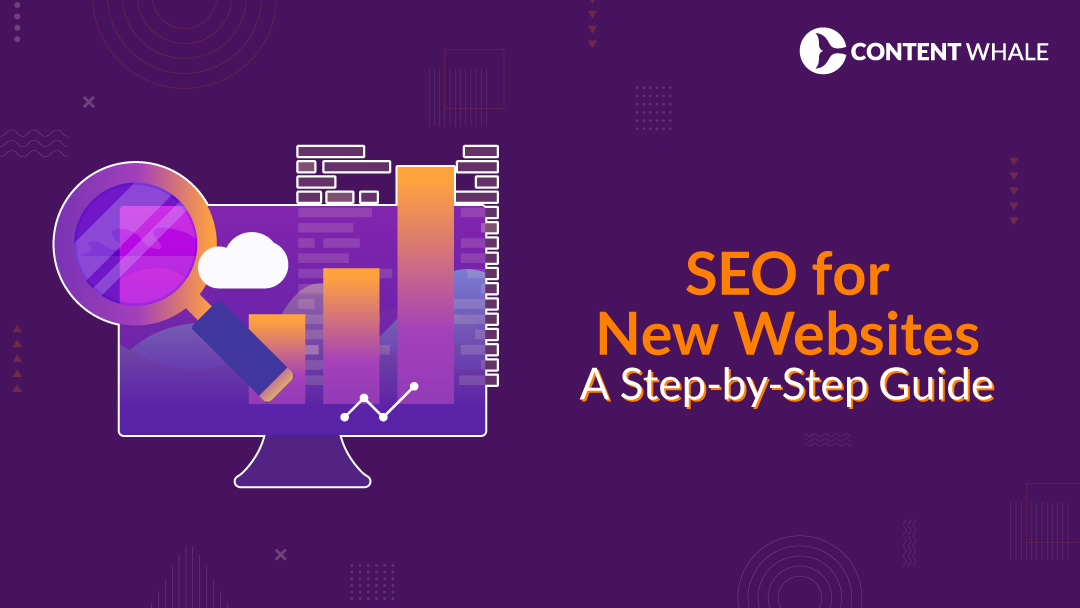Understanding the basics of SEO for new websites is essential for gaining visibility. This guide covers keyword research, content optimization, and technical SEO. It also includes strategies for building backlinks to improve site authority. Learn about essential tools and resources to enhance your search engine optimization efforts. Implement a step-by-step SEO checklist to ensure comprehensive website optimization. These actionable SEO tips are designed to help beginners develop an effective SEO strategy for their new websites.
SEO is essential for achieving online visibility for new websites. Due to limited authority and competition, new websites face challenges. To overcome these challenges, it’s important to implement effective SEO strategies from the start. This guide provides beginner SEO techniques to help new websites improve their search engine optimization.
Key aspects of website optimization include keyword research, content optimization, and technical SEO. Additionally, building backlinks is vital for gaining authority and improving rankings. This guide covers actionable SEO tips and a comprehensive SEO checklist to ensure your site is optimized.
Understanding SEO basics, conducting thorough keyword research, and creating quality content are foundational steps. Technical SEO ensures your site is accessible and fast. Backlinks build trust and improve search rankings. Using the right tools and staying updated with SEO trends will keep your site performing well. This guide will help you navigate the complexities of SEO for new websites.
Understanding SEO Basics
1. What is SEO?
Search engine optimization (SEO) involves optimizing a website to rank higher in search results. Higher rankings increase visibility and drive organic traffic. For new websites, SEO is essential for building an online presence and attracting visitors. Effective SEO can make the difference between being found by potential customers or getting lost in the vast web.
2. How Search Engines Work
Search engines like Google use algorithms to index and rank web pages. They consider factors like relevance, quality, and user engagement. Understanding these factors helps in developing an effective SEO strategy for new websites. Algorithms evaluate content, keywords, and user interactions. They aim to deliver the most relevant results to search queries. Knowing how these algorithms work is crucial for website optimization.
3. Key Components of SEO
On-Page SEO
On-page SEO involves optimizing individual web pages. This includes content quality, keyword optimization, meta tags, and internal linking. For new websites, focusing on beginner SEO techniques can make a significant difference. Key areas to optimize include:
- Content Quality: Ensure your content is informative, engaging, and valuable to users.
- Keywords: Integrate relevant keywords naturally into your content, headings, and meta descriptions.
- Meta Tags: Use descriptive and keyword-rich meta titles and descriptions to improve click-through rates.
- Internal Linking: Link to other relevant pages on your site to help search engines understand your content structure.
Off-Page SEO
Off-page SEO focuses on activities outside the website. Building high-quality backlinks from reputable sites is a key aspect. This boosts the authority and credibility of your site. Effective strategies include:
- Guest Blogging: Write articles for other sites in your niche and include links back to your site.
- Social Media: Share your content on social platforms to increase exposure and attract links.
- Influencer Outreach: Connect with influencers in your industry to promote your content and gain backlinks.
Technical SEO
Technical SEO ensures search engines can crawl and index your site efficiently. Important elements include site speed, mobile-friendliness, and secure connections (HTTPS). Technical SEO is vital for website optimization and improving user experience. Focus areas include:
- Site Speed: Optimize images, leverage browser caching, and minimize HTTP requests to improve load times.
- Mobile-Friendliness: Use responsive design to ensure your site looks and functions well on all devices.
- HTTPS: Secure your site with an SSL certificate to protect user data and enhance trust.
Understanding the basics of SEO for new websites is the first step. Implementing beginner SEO techniques can help new sites gain visibility. Focus on on-page, off-page, and technical SEO to build a strong foundation. Following these SEO tips and maintaining a comprehensive SEO checklist ensures that your site is optimized
Keyword Research and Content Optimization

1. Importance of Keyword Research
Keyword research is essential for SEO for new websites. It helps identify the terms and phrases potential visitors use. Effective keyword research drives targeted traffic to your site. This process ensures that your content aligns with what users are searching for.
2. Tools for Keyword Research
Using the right tools can simplify keyword research. Some popular tools include:
- Google Keyword Planner: Ideal for finding relevant keywords and estimating search volumes.
- SEMrush: Provides comprehensive keyword analysis and competitor insights.
- Ahrefs: Offers detailed keyword data and difficulty scores.
These tools help identify high-volume, low-competition keywords. This approach is particularly beneficial for beginner SEO.
3. Tips for Creating SEO-Friendly Content
Quality Content
Creating high-quality content is crucial. Your content should be informative, engaging, and valuable to readers and address your audience’s needs and questions.
Strategic Keyword Placement
Use keywords strategically throughout your content. Place primary keywords in titles, headings, and within the first 100 words. Avoid keyword stuffing. Instead, incorporate keywords naturally.
Meta Tags Optimization
Optimize your meta tags by including primary keywords. Write compelling meta descriptions that encourage clicks. A well-optimized meta title and description improve click-through rates and enhance search engine optimization.
Using LSI Keywords
Latent Semantic Indexing (LSI) keywords are related terms that help search engines understand your content’s context. Use LSI keywords to enhance content relevance.
Content Structure
Structure your content with clear headings and subheadings. This makes it easy for readers and search engines to understand. Use bullet points and short paragraphs for better readability.
Incorporating Keywords Naturally
Ensure your content flows naturally. Avoid overloading sentences with keywords. Instead, focus on providing value while seamlessly integrating keywords.
Effective keyword research and content optimization are critical for SEO for new websites. Use tools like Google Keyword Planner, SEMrush, and Ahrefs for research. Create high-quality content with strategic keyword placement. Optimize meta tags and use LSI keywords. Structure your content well and ensure a natural flow. These SEO tips will enhance your website optimization efforts, making your content more discoverable and engaging. Following a comprehensive SEO checklist ensures thorough optimization.
Technical SEO for New Websites

1. Importance of Technical SEO
Technical SEO is vital for SEO for new websites. It ensures that search engines can crawl and index your site effectively. Proper technical SEO improves user experience and boosts your site’s performance in search results.
Technical SEO involves optimizing various elements that impact your site’s performance. These elements ensure that search engines can navigate your site efficiently and understand its content. Proper technical SEO addresses issues like crawl errors, duplicate content, and slow loading times, which can hinder your site’s visibility and user experience.
2. Enhancing User Experience
Technical SEO directly improves user experience by ensuring your site is fast, mobile-friendly, and secure. A well-optimized site loads quickly, reducing bounce rates and keeping users engaged. Mobile-friendliness ensures that your site looks good and functions well on all devices, catering to the increasing number of mobile users. Secure connections (HTTPS) protect user data and build trust, which is crucial for retaining visitors and encouraging conversions.
3. Key Technical SEO Elements
Site Speed
Site speed is a critical ranking factor. Faster sites provide a better user experience. Improve site speed by optimizing images, enabling browser caching, and minimizing HTTP requests. Tools like Google PageSpeed Insights help identify and fix speed issues.
Mobile-Friendliness
A mobile-friendly site is essential. Many users access websites via mobile devices. Ensure your site uses a responsive design to adapt to different screen sizes. Google’s Mobile-Friendly Test tool can help assess your site’s mobile compatibility.
Secure Connections (HTTPS)
Using HTTPS is crucial for site security. It protects user data and builds trust. Google favors secure sites in search rankings. Obtain an SSL certificate to enable HTTPS on your site. This step is fundamental for website optimization and improving your site’s credibility.
4. Tools for Monitoring and Improving Technical SEO
Google Search Console
Google Search Console helps monitor and maintain your site’s presence in search results. It identifies crawling issues, provides performance data, and allows you to submit sitemaps. This tool is indispensable for beginner SEO efforts.
Screaming Frog
Screaming Frog is a powerful SEO tool. It crawls your site to identify technical issues, such as broken links, duplicate content, and missing meta tags. This comprehensive analysis aids in effective search engine optimization.
GTmetrix
GTmetrix analyzes your site’s speed and provides actionable recommendations. It highlights areas for improvement, such as image optimization and browser caching.
Implementing Structured Data
Structured data helps search engines understand your content better. Use schema markup to enhance your site’s visibility in rich snippets. This technique can improve click-through rates and provide a competitive edge.
Technical SEO is a cornerstone of SEO for new websites. Focus on site speed, mobile-friendliness, and secure connections to improve user experience and search rankings. Use tools like Google Search Console, Screaming Frog, and GTmetrix to monitor and enhance technical SEO. Implementing structured data further boosts your site’s performance. Following these SEO tips and maintaining a detailed SEO checklist ensures comprehensive website optimization.
Building Backlinks and Site Authority

1. Importance of Backlinks
Backlinks are essential for SEO for new websites. They act as endorsements from other websites, signaling trust and authority to search engines. When reputable sites link to your content, search engines view your site as more trustworthy and relevant. This can significantly improve your search rankings and drive more organic traffic.
High-quality backlinks from authoritative websites enhance your site’s credibility. Search engines like Google use backlinks as a measure of a website’s authority. The more reputable sites linking to you, the more search engines trust your content. This trust translates into higher rankings in search results, making it easier for users to find your site.
2. Strategies for Earning High-Quality Backlinks
Guest Blogging
Guest blogging involves writing articles for other websites in your niche. This strategy helps you gain exposure and earn backlinks. Include links back to your site in your author bio or within the content. Guest blogging is an effective SEO strategy for building authority.
Outreach
Outreach involves contacting bloggers, influencers, and webmasters to request backlinks. Personalized outreach emails can increase your chances of getting links. Provide value by offering unique content or insights relevant to their audience. This approach helps new websites build relationships and earn quality backlinks.
Creating Link-Worthy Content
Develop content that others naturally want to link to. This includes comprehensive guides, infographics, original research, and case studies. High-quality, valuable content attracts more links and improves search engine optimization.
3. Guest Blogging, Outreach, and Partnerships
Building Partnerships
Collaborate with other businesses or websites in your niche. Partnerships can lead to mutual linking opportunities and increased exposure. For example, co-authoring a piece of content or hosting a joint webinar can result in valuable backlinks.
Using Social Media
Share your content on social media platforms to increase its visibility. Engaging with your audience on social media can lead to more shares and backlinks. Social media is a valuable tool in your SEO checklist for gaining links and improving site authority.
4. Monitoring and Maintaining Your Backlink Profile
Using SEO Tools
SEO tools like Ahrefs, Moz, and SEMrush help monitor your backlink profile. These tools provide insights into the quality and quantity of your backlinks. Check for harmful links regularly and disavow them if necessary.
Analyzing Competitors
Analyze your competitors’ backlink profiles to identify potential linking opportunities. Understanding where your competitors get their backlinks can help you develop your SEO strategy.
Building backlinks is a key part of SEO for new websites. Use strategies like guest blogging, outreach, and partnerships to earn high-quality backlinks. Create valuable content that attracts links naturally. Monitor your backlink profile with tools like Ahrefs, Moz, and SEMrush. Following these SEO tips and maintaining a comprehensive SEO checklist will enhance your website optimization efforts and improve your site’s authority.
Using SEO Tools and Resources

1. Overview of Popular SEO Tools
Google Analytics
Google Analytics provides insights into your website traffic. It helps you understand user behavior and measure the effectiveness of your SEO strategy. Track metrics like page views, bounce rates, and conversion rates.
Google Search Console
Google Search Console monitors your site’s presence in search results. It identifies crawling issues, tracks keyword performance, and provides data on backlinks. This tool is essential for beginner SEO efforts.
SEMrush
SEMrush offers comprehensive SEO analysis. It includes keyword research, site audits, and competitor analysis. SEMrush helps you identify opportunities and improve your search engine optimization.
Ahrefs
Ahrefs is known for its robust backlink analysis. It provides detailed data on backlinks, keyword rankings, and content performance. Ahrefs is invaluable for building and monitoring your site’s authority.
2. How to Use These Tools to Track and Improve SEO Efforts
Tracking Performance
Use these tools to monitor your site’s performance regularly. Analyze traffic patterns, user behavior, and keyword rankings. This data helps you adjust your SEO strategy for better results.
Identifying Issues
Use site audit features to find and fix SEO issues. Address problems like broken links, duplicate content, and missing meta tags. Fixing these issues improves your site’s website optimization.
Competitor Analysis
Study competitors’ strategies using tools like SEMrush and Ahrefs. Identify their high-performing keywords and backlink sources. Use this information to refine your own SEO checklist and gain a competitive edge.
3. Free vs. Paid Tools
Free Tools
Free tools like Google Analytics and Google Search Console provide essential insights. They are ideal for those starting with SEO for new websites, offering valuable data without any cost.
Paid Tools
Paid tools like SEMrush and Ahrefs offer advanced features, deeper insights, and more comprehensive data. Investing in paid tools can significantly enhance your search engine optimization efforts.
Using SEO tools is crucial for SEO for new websites. Tools like Google Analytics, Google Search Console, SEMrush, and Ahrefs provide valuable insights. They help track performance, identify issues, and analyze competitors. Free tools are great for beginners, while paid tools offer advanced features. Following these SEO tips and maintaining a detailed SEO checklist will ensure thorough website optimization.
Conclusion

Effective SEO for new websites is essential for gaining visibility and attracting organic traffic. Understanding the basics of SEO, conducting thorough keyword research, and creating high-quality content are foundational steps. Implementing technical SEO ensures your site is accessible, fast, and secure, enhancing user experience. Building backlinks improves your site’s authority and trustworthiness, further boosting your rankings.
SEO is an ongoing process that requires continuous effort and regular updates. Monitor your site’s performance, keep up with the latest SEO trends, and adjust your SEO strategy as needed. Using the right tools will help you track progress and identify areas for improvement. Stay committed to your website optimization efforts by following a comprehensive SEO checklist. Keep learning and adapting to maintain and improve your search engine optimization results. These SEO tips will help your new website succeed in a competitive digital space.
FAQs
What is SEO, and why is it important for new websites?
Search engine optimization (SEO) involves optimizing a website to rank higher in search results. SEO is crucial for new websites to gain visibility, attract visitors, and compete with established sites.
How do I choose the right keywords for my new website?
Use keyword research tools like Google Keyword Planner, SEMrush, and Ahrefs. Focus on high-volume, low-competition keywords relevant to your niche. Effective keyword selection is vital for your SEO strategy.
What are some common technical SEO issues, and how can I fix them?
Common issues include slow site speed, lack of mobile-friendliness, and insecure connections. For better website optimization, use tools like Google PageSpeed Insights, implement responsive design, and secure your site with HTTPS.
How can I build high-quality backlinks for my website?
Engage in guest blogging, outreach, and partnerships. Create valuable content that attracts links. Use SEO tools like Ahrefs or Moz to monitor and improve your backlink profile. Building backlinks is essential for search engine optimization.
Are there any free SEO tools I can use to improve my site’s performance?
Yes, tools like Google Analytics and Google Search Console offer valuable insights for free. These tools are great for beginner SEO efforts and provide essential data to enhance your SEO checklist and overall website optimization.





